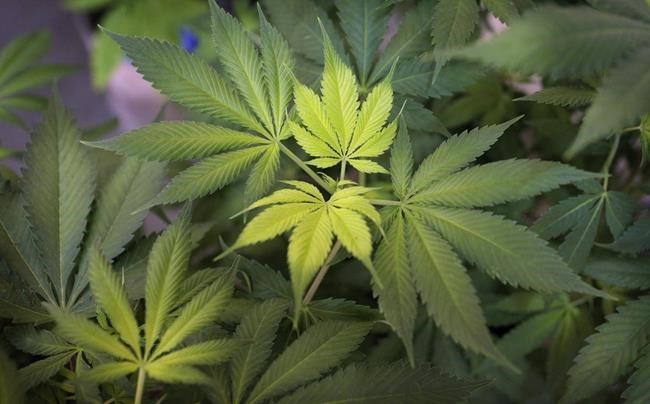The B.C. government plans to consult with police, local governments and the public before deciding how to sell and distribute recreational marijuana once the federal government legalizes pot next summer.
Solicitor General Mike Farnworth told reporters Thursday that “all options are on the table,” including selling marijuana through government liquor stores. “We have not made any decisions about that,” he said.
Farnworth said the government intends to gather suggestions on ways to sell and distribute marijuana, as well as on the appropriate age limit for purchasing it.
The federal government introduced legislation in April to legalize and restrict access to marijuana across the country beginning in July 2018.
Under the proposed law, the federal government would be responsible for regulating production and setting health and safety standards. The provinces would oversee distribution and sales, and could set an age limit above the federal minimum of 18.
Last week, Ontario became the first province to reveal its plans, announcing that it will sell marijuana to residents 19 or older at stores run by the province’s liquor control board.
Farnworth, who spoke to reporters in advance of meetings with his federal and provincial counterparts, said he planned to raise concerns about the tight federal timeline for getting new rules and regulations in place before July.
“It’s certainly a challenging deadline, not just for British Columbia but for all provinces,” he said. “I think that both ministers and premiers have been saying that to the federal government.
Dana Larsen, an advocate for marijuana policy reform, said government’s ability to meet the deadline depends on how complicated they want to make the system. “If they want to just integrate the current market, which is hundreds of dispensaries serving tens of thousands of satisfied customers, that would be fairly easy,” he said.
“If they want to try to eliminate the current market and replace it with some kind of government monopoly, that will be very challenging and probably won’t work in the long run either.”
Larsen, who was in Ottawa to speak to the standing committee on health about the new cannabis bill, said the federal government is testing the product and all the provinces have to do is open shops and sell it. “So I don’t really see why this is very complicated at all or why it would it take a year to put something like this into place.”
But former B.C. Liberal solicitor general Mike Morris, an ex-Mountie, said he has doubts about the ability of B.C. and other provincial governments to meet the federal deadline.
“[It’s] a big tall order,” he said. “I was in that office for a couple of years and we had staff working on it pretty steadily, and they were visiting the jurisdictions in the United States.
“The more you looked at it, the more questions were asked and the more stones you had to turn over to try and get some answers to resolve some things.
“So, personally, I don’t think we’ll be ready.”
Morris said it’s crucial that governments ensure the health and safety of young people.
He cited the case of a close family member who began smoking marijuana at a young age and was diagnosed with drug-induced schizophrenia by the time he was 18.
“There’s tragic consequences if we don’t get it right, so that is foremost and paramount in my mind,” he said.
In addition, Morris said police will need more resources to deal with an expected rise in the number of people driving under the influence of marijuana.
“Once it’s legalized, I think we’re going to see a lot more of that and we’re going to need a lot more of those resources in there.”
— With a file from The Canadian Press



